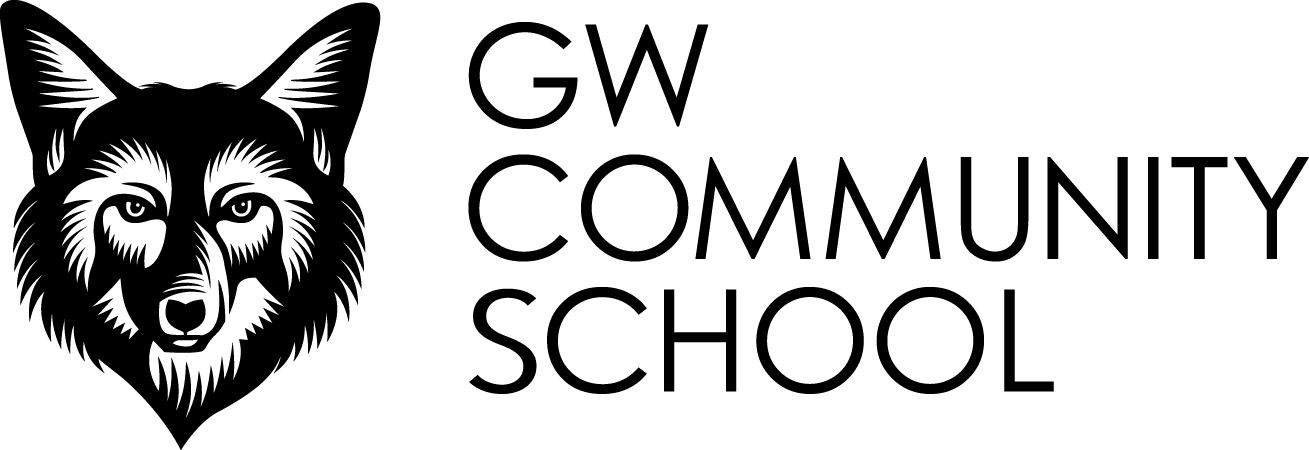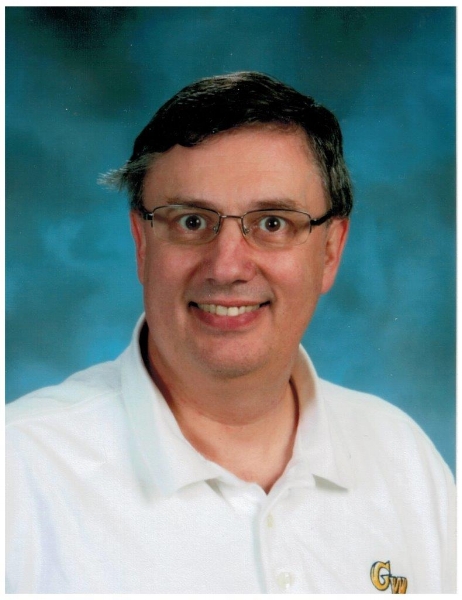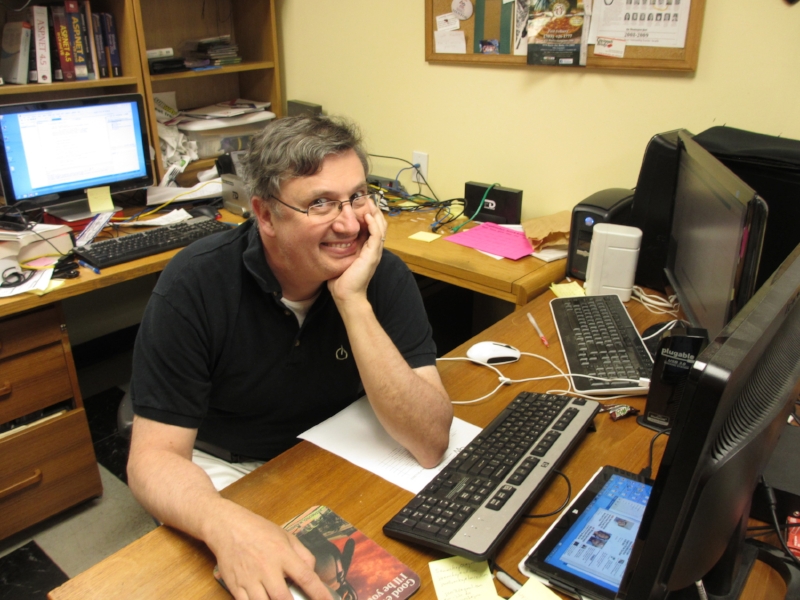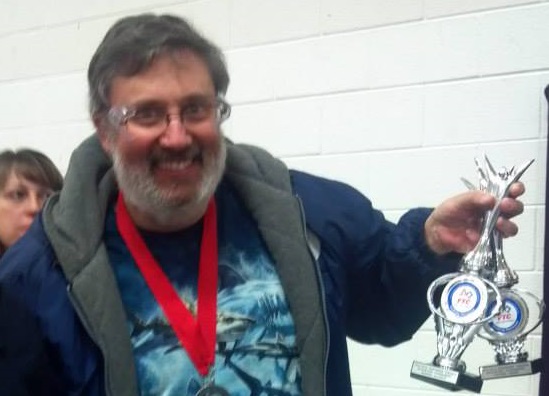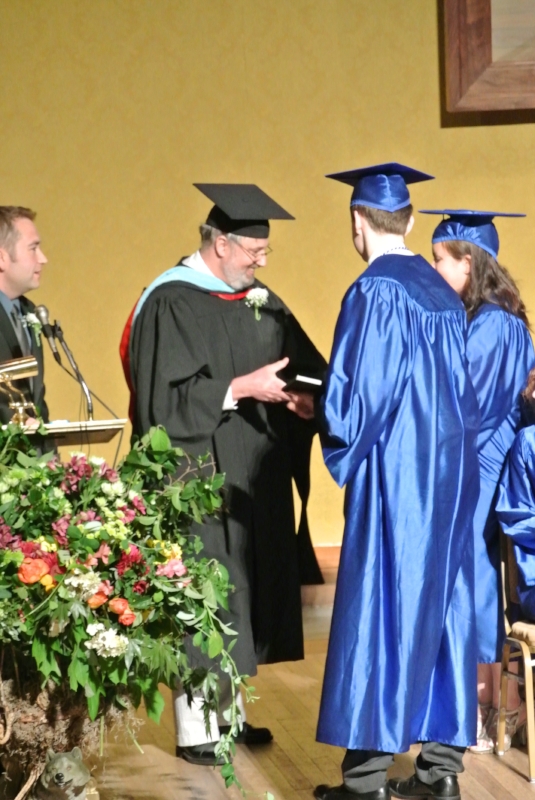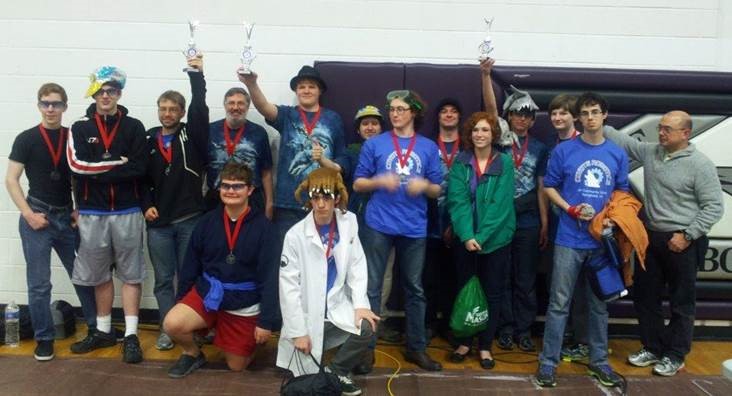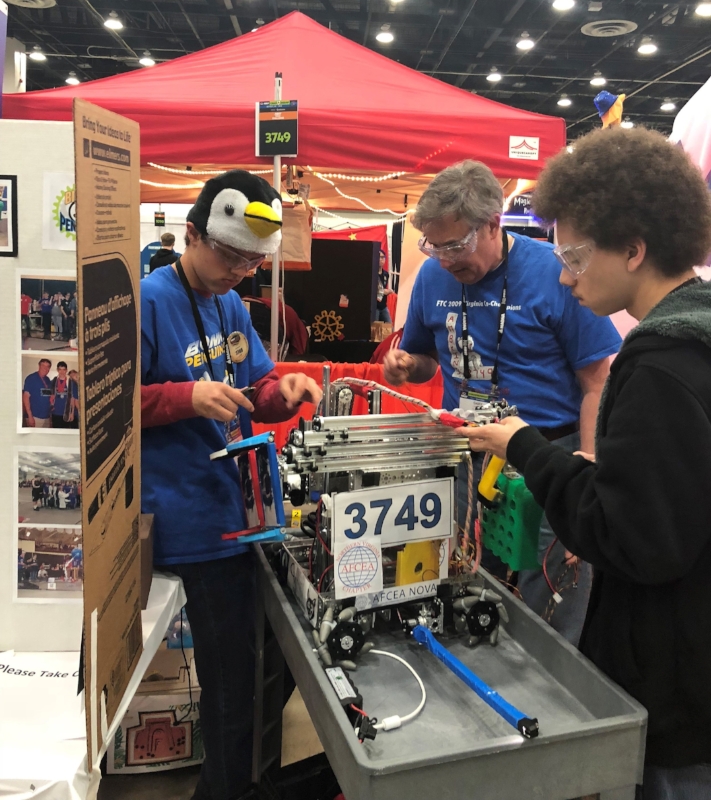GARY LINDNER - Math & ROBOTICS
Mr. Lindner was born in DC and raised in Kensington , MD. Following high school he studied at Rensselaer Polytechnic Institute and Stanford University (in California, in Paris, France and in Vienna, Austria), with a two-year church mission in between, earning a BA in French Literature and a MA in Education. After 5 years teaching Math in public schools in California and Maryland, plus a private school in Switzerland, a frustrated Mr. Lindner left the classroom for his backup career because he was not really getting much time to actually teach.
After 15 years in Information Systems, Mr. Lindner returned to the classroom in September 2000 at The GW Community School to teach math and French, the best job in the world! Mr. Lindner has a wonderful wife Jenee, three great sons (two of whom, Chris and Sam, are graduates of GWCS), and two cozy dogs. He enjoys teaching, reading, doing jigsaw puzzles and being home with his family. He has a special interest in the history of the American Civil Ward and has visited and studied many historical sites. Mr. Lindner is also the coach of the championship GWCS Robotics teams, which has twice competed at the World Championships.
Courses Taught
Algebra I
The successful mastery of Algebra 1 is widely considered to be the gatekeeper to success in the study of upper-level mathematics. The study of algebraic thinking begins in kindergarten and is progressively formalized prior to the study of the algebraic content found in the Algebra 1 Standards of Learning. Included in the progression of algebraic content is patterning, generalization of arithmetic concepts, proportional reasoning, and representing mathematical relationships using tables, symbols, and graphs. The study of Algebra 1 assists students in generalizing patterns or modeling relevant, practical situations with algebraic models. Connections between Algebra 1 and other subject areas through practical applications assist in helping students attach meaning to the abstract concepts of algebra.
Students will use algebra as a tool for representing and solving a variety of practical problems. Tables and graphs will be used to interpret algebraic expressions, equations, and inequalities and to analyze behaviors of functions. Graphing utilities (calculators, computers, and other technology tools) are used to assist in teaching and learning. Graphing utilities facilitate visualizing, analyzing, and understanding algebraic and statistical behaviors and provide a powerful tool for solving and verifying solutions.
Geometry (Not offered with Mr. Lindner 2021-2022)
High School Geometry class is an important step for students as they learn to reason logically and correctly. In today’s world of hyper-information, learning to evaluate and judge the validity of arguments and reasoning is essential. Geometry begins with a formal study of inductive and deductive reasoning and proceeds to learning how to formally prove a conjecture. The formal study of Euclidean Geometry is pursued by using both inductive and deductive reasoning leading to formally proving theorems based on definitions and postulates. This process is reused, though less formally, in all succeeding math classes, as well as studies in many other disciplines. Students are also introduced to the basics of Right Triangle Trigonometry. The actual study of Geometry provides students with many rules and processes frequently used in everyday circumstances. Success in High School Geometry has been shown to be a strong predictor of success in college. Combined with the previous study of Algebra 1, Geometry prepares students to combine these two parts of mathematics through Analytic Geometry studied in Algebra 2/Trigonometry.
Algebra II/Trigonometry
Algebra II/Trigonometry is a one-year course that builds on the Algebra and Geometry studied previously. After studying Geometry, students are prepared for revisiting topics in Algebra. The study of lines and polygons in Geometry provides for an additional visual and spatial analysis of the behaviors of the graphs of functions and their relationships with formulas. The study of logic and proofs in Geometry provides for understanding how concepts that cannot be visualized or intuited can be proven to be true. Graphing calculators and other graphing utilities are used to help visualize the behavior of the graphs of functions. The study of angles and triangles in Geometry provides for beginning the study of Trigonometry. Algebra and Trigonometry will then be used to solve real life problems.
Precalculus (Not offered 2021-2022)
Before learning Calculus, there are many concepts and skills of Mathematics that students study. Many of these are particularly necessary to prepare a student to learn Calculus. These are the topics covered in Precalculus.
Precalculus is a one-year college-level course that develops a student’s understanding of algebraic and transcendental functions, sequences and series, and vectors. In this course students prepare for Calculus by revisiting many techniques of Mathematics previously studied. In Precalculus, the foundations of these techniques are analyzed and the relationships between the various techniques are studied. Additional focus is placed on functions, including patterns that apply to all functions. This will be a process of Discovery, where we will mirror the historical development of Mathematics by discovering the rules instead of accepting them as dictated. Students extend their study of trigonometry, including extensive work on analytic trigonometry and analytic geometry. Vectors are used to connect analytic geometry to Physics in real life. As the same patterns are repeated throughout the various areas previously studied independently, the stage is set for the unification of all mathematics achieved through Calculus. The techniques learned are also applied to solving real-life applications.
AP Calculus AB
Calculus is like the Power Tools of Math as compared to the Hand Tools of Precalculus. Sometimes when solving a problem there is a gap in the process where mathematics without calculus is not able to cross. These gaps often relate to rates of change that are constantly changing, or situations where quantities are infinitely small or infinitely large. With precalculus we can determine the path of a satellite in orbit. With calculus, we can determine its velocity (which is constantly changing) at a particular point in the orbit. The questions that can be answered by calculus are truly amazing!
AP Calculus AB is roughly equivalent to a first semester college calculus course devoted to topics in differential and integral calculus. The AP course covers topics in these areas, including concepts and skills of limits, derivatives, definite integrals, and the Fundamental Theorems of Calculus. The course teaches students to approach calculus concepts and problems when they are represented graphically, numerically, analytically, and verbally, and to make connections amongst these representations.
Students learn how to use technology to help solve problems, experiment, interpret results, and support conclusions. The use of a graphing calculator in AP Calculus AB is considered an integral part of the course.
The Advanced Placement Program® enables willing and academically prepared students to pursue college-level studies – with the opportunity to earn college credit, advanced placement, or both – while still in high school. AP Exams are given each year in May. Students who earn a qualifying score on an AP Exam are typically eligible to receive college credit/and or placement into advanced courses in college.
Robotics
The GW Community School and Coyote Robotics, Inc. jointly sponsor two competition robotics teams that participate in the FIRST® Tech Challenge. This world-wide program provides robotic engineering challenges in a competition league system to develop Science, Technology, Engineering and Math (STEM) skills in students from grades 7 – 12. GWCS students join with other students from the community to learn how to design, build, program, test and operate robots to play a particular game each year. The season kicks-off the second Saturday in September when the new game is revealed to the world. Students need no experience to participate – all is taught in the program. Students travel around Virginia (and occasionally other states and countries) to meet and team up with other students and compete together and against others in a program that stresses Gracious Professionalism. The competition season lasts through April. Team meetings take place during 7th Period after school, evenings, and Saturdays, with most competitions taking place on Saturdays. The GW Community School provides a Robotics Workshop space in which the teams meet, build and test their robots. During past seasons our teams have competed in the FTC World Championship in Atlanta and Detroit and in the Asia-Pacific Invitational in Sydney, Australia. Participation in FIRST Tech Challenge qualifies students for millions of dollars of college scholarships.
